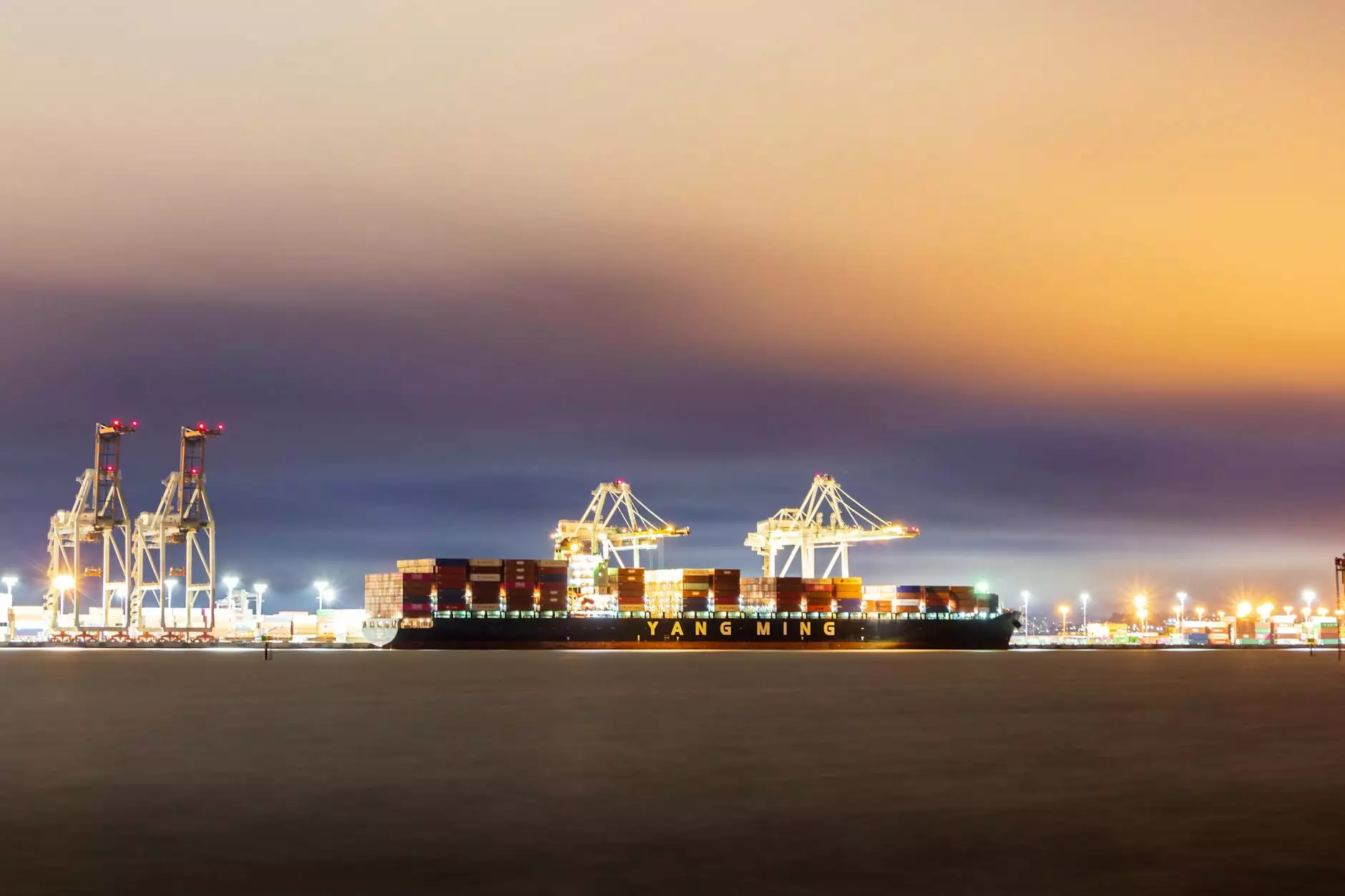The Phenomenal World of Business: A Comprehensive Guide to Shipping and Transportation

Business constitutes the backbone of our global economy. With the rise of globalization and technological advancements, the logistics and transportation sector has evolved to meet the demands of modern commerce. In this article, we will delve into the key aspects of shipping centers, transportation, and airports, providing a detailed overview of how these elements integrate into the world of business. Moreover, we will focus on the crucial topic of cargo quotes, illuminating how they facilitate seamless logistics operations.
Understanding the Shipping Process
The shipping process is a vital component of any successful business involved in transporting goods. It covers everything from the moment a product is manufactured to the point it reaches the consumer. Here are the essential steps involved in this intricate process:
- Manufacturing: The journey begins at the manufacturing stage, where products are created.
- Packaging: Proper packaging is crucial for protecting goods during transportation.
- Freight Forwarding: A freight forwarder coordinates the logistics for transporting the cargo from the manufacturer to the destination.
- Customs Clearance: Ensuring compliance with regulations, customs clearance is essential for international shipping.
- Last-Mile Delivery: The final step includes delivering the product directly to the consumer or retailer.
Key Players in Shipping Centers
Shipping centers are the hub of logistics activity, serving as coordination points for the movement of goods. Here’s a closer look at the key players involved:
1. Freight Forwarders
Freight forwarders act as intermediaries between shippers and carriers. They handle logistics and documentation, ensuring that goods are transported efficiently and in compliance with international regulations.
2. Shipping Lines
Shipping lines are the companies that operate the vessels transporting cargo. They offer various shipping services, including container shipping, bulk shipping, and specialized transport for valuable or sensitive goods.
3. Warehouse Operators
Warehouse operators manage storage facilities that hold goods before shipment. Their role is essential in maintaining inventory levels and ensuring product availability.
The Transportation Sector: Bridging Gaps
The transportation sector is fundamental to a thriving economy. It encompasses various modes of transport, including:
- Road Transport: This includes trucks and vans that transport goods over land.
- Air Transport: Critical for fast delivery, air transport is ideal for high-value or time-sensitive cargo.
- Sea Transport: The most cost-effective for bulk shipments, sea transport can handle large volumes of goods over long distances.
- Rail Transport: Ideal for bulk goods and long-distance travel, rail is often more environmentally friendly than road transport.
Airports and Their Role in Business Logistics
Airports serve as crucial nodes in the global supply chain, especially for businesses reliant on air freight. The efficiency of handling cargo at airports can significantly impact the overall shipping process. Here’s how:
1. Cargo Handling Facilities
Modern airports boast sophisticated cargo handling facilities that streamline the unloading, storage, and loading of goods. Advanced tracking systems and enhanced security measures ensure operational efficiency.
2. Connectivity and Reach
Airports provide unparalleled connectivity, enabling businesses to reach customers globally. The ability to transport goods quickly across vast distances opens new markets for businesses.
3. Customs and Regulatory Compliance
Efficient customs processes at airports facilitate quicker clearance for cargo, reducing delays and enhancing customer satisfaction. Proper compliance helps avert costly fines and disruptions.
Understanding Cargo Quotes
Now that we have explored the logistics of shipping, let’s delve into the importance of cargo quotes. A cargo quote provides businesses with the estimated costs of shipping goods, which is crucial for budgeting and planning. Here are some key aspects:
1. What Is a Cargo Quote?
A cargo quote is an estimate provided by logistics companies that outlines the costs associated with transporting goods from one location to another. This quote includes various fees such as:
- Freight Charges: The base cost of transporting goods over a certain distance.
- Fuel Surcharges: Additional fees due to fluctuations in fuel prices.
- Insurance: Costs for insuring shipments against loss or damage.
- Customs Fees: Charges for clearing goods through customs.
2. Factors Influencing Cargo Quotes
Several factors influence the cargo quote provided by logistics companies:
- Distance: The farther the shipment travels, the higher the cost.
- Weight and Volume: Heavier and bulkier items typically incur higher shipping costs.
- Type of Goods: Delicate or hazardous materials may require special handling fees.
- Seasonal Demand: Shipping costs can fluctuate based on demand during peak seasons.
3. How to Request a Cargo Quote
Requesting a cargo quote is a straightforward process:
- Identify Your Needs: Determine the type of goods, weight, and preferred shipping methods.
- Contact Logistics Providers: Reach out to multiple logistics companies to compare quotes.
- Provide Detailed Information: Offer precise details to ensure accurate quoting.
- Review and Compare: Analyze the quotes based on costs, delivery times, and included services.
Enhancing Efficiency in Shipping Operations
Efficiency in shipping operations is essential for businesses wanting to reduce costs and improve service levels. Here are actionable strategies to enhance operational efficiency:
1. Embrace Technology
Investing in logistics technology, such as Transportation Management Systems (TMS) and Inventory Management Solutions, can help streamline processes and provide real-time visibility into shipments.
2. Optimize Routes
Utilizing route optimization software can significantly reduce transit times and fuel consumption by finding the most efficient paths for delivery.
3. Foster Relationships with Shipping Partners
Building strong relationships with freight forwarders and carriers can lead to better service, more competitive pricing, and priority during peak periods.
The Future of Shipping and Logistics
As the business landscape continues to evolve, so do the trends in shipping and logistics. Here are some exciting developments to watch:
1. Sustainability Initiatives
Increasing environmental regulations are prompting businesses to adopt more sustainable practices in shipping, such as using eco-friendly packaging and optimizing transport routes to reduce carbon footprints.
2. Automation and Robotics
The integration of automation and robotics in warehouses and shipping processes aims to improve accuracy and efficiency, minimizing human error and speeding up operations.
3. Digital Platforms
Digital platforms are revolutionizing the logistics space, allowing businesses to book shipments, track cargo in real-time, and manage inventory more effectively than ever before.
Conclusion
Understanding the nuances of shipping centers, transportation, and airports is essential for any business looking to succeed in today’s complex logistics landscape. With a comprehensive grasp of how cargo quotes work, businesses can ensure they are making informed decisions about their logistics strategies. By embracing technology, optimizing operations, and fostering solid partnerships, companies can unlock significant efficiencies that drive their success.
As the world of business continues to change, staying informed and adaptable will be the key to thriving in this dynamic environment. Whether you're an entrepreneur or a seasoned business owner, the insights shared in this article provide a roadmap to navigate the often-complex world of shipping and logistics successfully.



